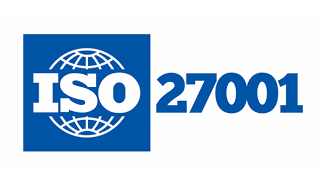
Becoming ISO 27001 Certified in Australia
Are you considering becoming ISO 27001 certified in Australia? With the increasing importance of data security, adhering to internationally recognised standards has become crucial for businesses operating in today’s digital landscape. In this article, we will explore the process of obtaining ISO 27001 certification in Australia and the benefits it can bring to your organisation.
ISO 27001 is an information security management system (ISMS) standard that provides a framework for effectively managing and protecting sensitive information. By achieving ISO 27001 certification, your business can demonstrate its commitment to implementing robust security measures and safeguarding confidential data.
In Australia, the certification process involves several steps, including conducting a risk assessment, developing and implementing security controls, and undergoing an independent audit by a certification body. Achieving ISO 27001 certification not only helps strengthen your organisation’s security posture but also enhances trust and credibility among clients and stakeholders.
Whether you’re a small business or a large enterprise, obtaining ISO 27001 certification can provide a competitive advantage by demonstrating your dedication to protecting sensitive information. Stay ahead of the competition and safeguard your data by embarking on the ISO 27001 certification journey in Australia today.

Why is ISO 27001 certification important?
In today’s digital era, data security has become a paramount concern for businesses of all sizes. As organisations increasingly rely on technology and digital systems to store and process sensitive information, the need to safeguard this data has never been more critical. ISO 27001 certification is a globally recognised standard that provides a comprehensive framework for establishing and maintaining an effective Information Security Management System (ISMS).
By achieving ISO 27001 certification, organisations in Australia can demonstrate their commitment to implementing robust security measures and protecting their valuable data assets. This certification not only enhances the trust and confidence of clients, partners, and stakeholders but also helps to mitigate the risk of costly data breaches, which can have severe consequences for a business’s reputation and financial well-being.
Moreover, the ISO 27001 standard is widely recognised as a benchmark for best practices in information security management. Compliance with this standard can help organisations to identify and address potential vulnerabilities, implement appropriate controls, and continuously improve their security posture. This, in turn, can lead to improved operational efficiency, reduced downtime, and increased resilience in the face of evolving cyber threats.
Overview of ISO 27001 certification process in Australia
The process of obtaining ISO 27001 certification in Australia involves several key steps, each of which is designed to ensure that an organisation’s ISMS meets the rigorous requirements of the standard. The first step is to conduct a comprehensive risk assessment, which involves identifying and evaluating the potential threats and vulnerabilities that could impact the organisation’s information assets.
Based on the findings of the risk assessment, the organisation must then develop and implement a set of security controls and policies to mitigate these risks. These controls may include technical measures, such as access controls, encryption, and network security, as well as administrative and organisational measures, such as employee training, incident response planning, and business continuity management.
Once the ISMS has been established, the organisation must undergo an independent audit by a certified ISO 27001 auditor. This audit process involves a thorough review of the organisation’s ISMS, including the effectiveness of the implemented controls and the overall compliance with the standard’s requirements. If the organisation successfully passes the audit, it will be awarded the ISO 27001 certification, which is valid for a period of three years.
Steps to becoming ISO 27001 certified in Australia
The process of becoming ISO 27001 certified in Australia can be broken down into several distinct steps, each of which must be completed to achieve the desired certification. The first step is to establish an ISMS that aligns with the requirements of the ISO 27001 standard. This involves conducting a comprehensive risk assessment, identifying and implementing appropriate security controls, and documenting all relevant policies and procedures.
Next, the organisation must undergo a pre-certification audit, which is typically conducted by an independent third-party auditor. This audit is designed to identify any gaps or areas of non-compliance within the ISMS, allowing the organisation to address these issues before the final certification audit.
Once the pre-certification audit has been successfully completed, the organisation can proceed with the final certification audit. This audit is conducted by a certified ISO 27001 auditor, who will thoroughly review the organisation’s ISMS to ensure that it meets all the requirements of the standard. If the organisation passes the audit, it will be awarded the ISO 27001 certification, which is valid for a period of three years.
Choosing the right certification body in Australia
Selecting the right certification body is a critical step in the ISO 27001 certification process in Australia. The certification body is responsible for conducting the independent audit and ultimately granting the ISO 27001 certification, so it is essential to choose a reputable and experienced provider.
When evaluating potential certification bodies, organisations should consider factors such as the auditor’s expertise, the organisation’s accreditation, and its track record of successful certifications. It is also important to ensure that the certification body is recognised by the International Accreditation Forum (IAF) and the Joint Accreditation System of Australia and New Zealand (JAS-ANZ), as this provides assurance of the auditor’s competence and the validity of the certification.
In addition to these technical considerations, organisations should also consider the certification body’s customer service, communication, and overall responsiveness. The certification process can be complex and time-consuming, so it is important to work with a provider that is responsive, helpful, and committed to supporting the organisation throughout the entire journey.
Conducting a gap analysis and risk assessment
A critical step in the ISO 27001 certification process in Australia is the completion of a comprehensive gap analysis and risk assessment. This process involves identifying the organisation’s current security posture, evaluating its alignment with the ISO 27001 standard, and assessing the potential risks and vulnerabilities that could impact the organisation’s information assets.
The gap analysis is designed to identify areas where the organisation’s existing ISMS falls short of the ISO 27001 requirements. This may include gaps in policies, procedures, technical controls, or organisational responsibilities. By identifying these gaps, the organisation can develop a roadmap for implementing the necessary changes and improvements to align with the standard.
The risk assessment, on the other hand, focuses on identifying and evaluating the potential threats and vulnerabilities that could compromise the confidentiality, integrity, and availability of the organisation’s information assets. This process involves analysing the likelihood and impact of various risk scenarios, as well as the effectiveness of the existing security controls in mitigating these risks. The results of the risk assessment will inform the development and implementation of the organisation’s ISMS, ensuring that it is tailored to the specific needs and challenges of the business.
Implementing security controls and documenting policies
Once the gap analysis and risk assessment have been completed, the organisation must then implement the necessary security controls and document the relevant policies and procedures. This is a critical step in the ISO 27001 certification process, as it ensures that the ISMS is comprehensive, effective, and aligned with the standard’s requirements.
The security controls implemented by the organisation may include a wide range of technical, administrative, and physical measures, such as access controls, encryption, incident response planning, and employee training. These controls must be carefully designed and implemented to address the specific risks and vulnerabilities identified during the risk assessment process.
In addition to implementing the security controls, the organisation must also document all relevant policies and procedures related to its ISMS. This includes policies covering areas such as information security, asset management, human resources security, and business continuity management. These policies must be comprehensive, up-to-date, and communicated to all relevant stakeholders within the organisation.
Preparing for the ISO 27001 certification audit
As the organisation approaches the final stage of the ISO 27001 certification process in Australia, it must prepare for the certification audit. This audit is conducted by a certified ISO 27001 auditor and is designed to thoroughly evaluate the organisation’s ISMS to ensure that it meets all the requirements of the standard.
To prepare for the audit, the organisation must ensure that all relevant documentation is in order, including the ISMS policies and procedures, risk assessment reports, and evidence of the implemented security controls. The organisation should also conduct internal audits to identify and address any remaining gaps or areas of non-compliance.
During the certification audit, the auditor will review the organisation’s ISMS, interview key personnel, and examine the implementation of the security controls. The auditor may also request additional information or documentation to verify the organisation’s compliance with the standard. If the organisation successfully passes the audit, it will be awarded the ISO 27001 certification, which is valid for a period of three years.
How Siege Cyber can help
Achieving ISO 27001 certification in Australia can be a complex and time-consuming process, requiring a significant investment of resources and expertise. This is where Siege Cyber, a leading cybersecurity and compliance consultancy, can provide invaluable support and guidance.
Siege Cyber’s team of experienced professionals has a deep understanding of the ISO 27001 standard and the certification process in Australia. They can work closely with your organisation to conduct a comprehensive gap analysis, develop and implement an effective ISMS, and prepare for the final certification audit.
By partnering with Siege Cyber, your organisation can benefit from their proven methodologies, industry-leading expertise, and personalised support. From helping to identify and mitigate risks to ensuring that your ISMS meets all the requirements of the ISO 27001 standard, Siege Cyber can help you navigate the certification process with confidence and efficiency.
![]()
Conclusion
Obtaining ISO 27001 certification in Australia is a significant achievement that can bring a range of benefits to your organisation. By demonstrating your commitment to information security and data protection, you can enhance the trust and confidence of your clients, partners, and stakeholders, while also strengthening your overall security posture and resilience in the face of evolving cyber threats.
The process of achieving ISO 27001 certification in Australia involves several key steps, including conducting a comprehensive risk assessment, implementing appropriate security controls, and undergoing a rigorous certification audit. By working with a reputable and experienced certification body, such as Siege Cyber, your organisation can navigate this process with confidence and ensure that your ISMS meets the highest standards of the ISO 27001 standard.
Investing in ISO 27001 certification is a strategic decision that can pay dividends for your business in the long run. By demonstrating your commitment to information security, you can differentiate your organisation from the competition, attract new clients, and position yourself as a trusted partner in the digital landscape. Take the first step towards achieving ISO 27001 certification in Australia today and unlock the full potential of your organisation’s data security.